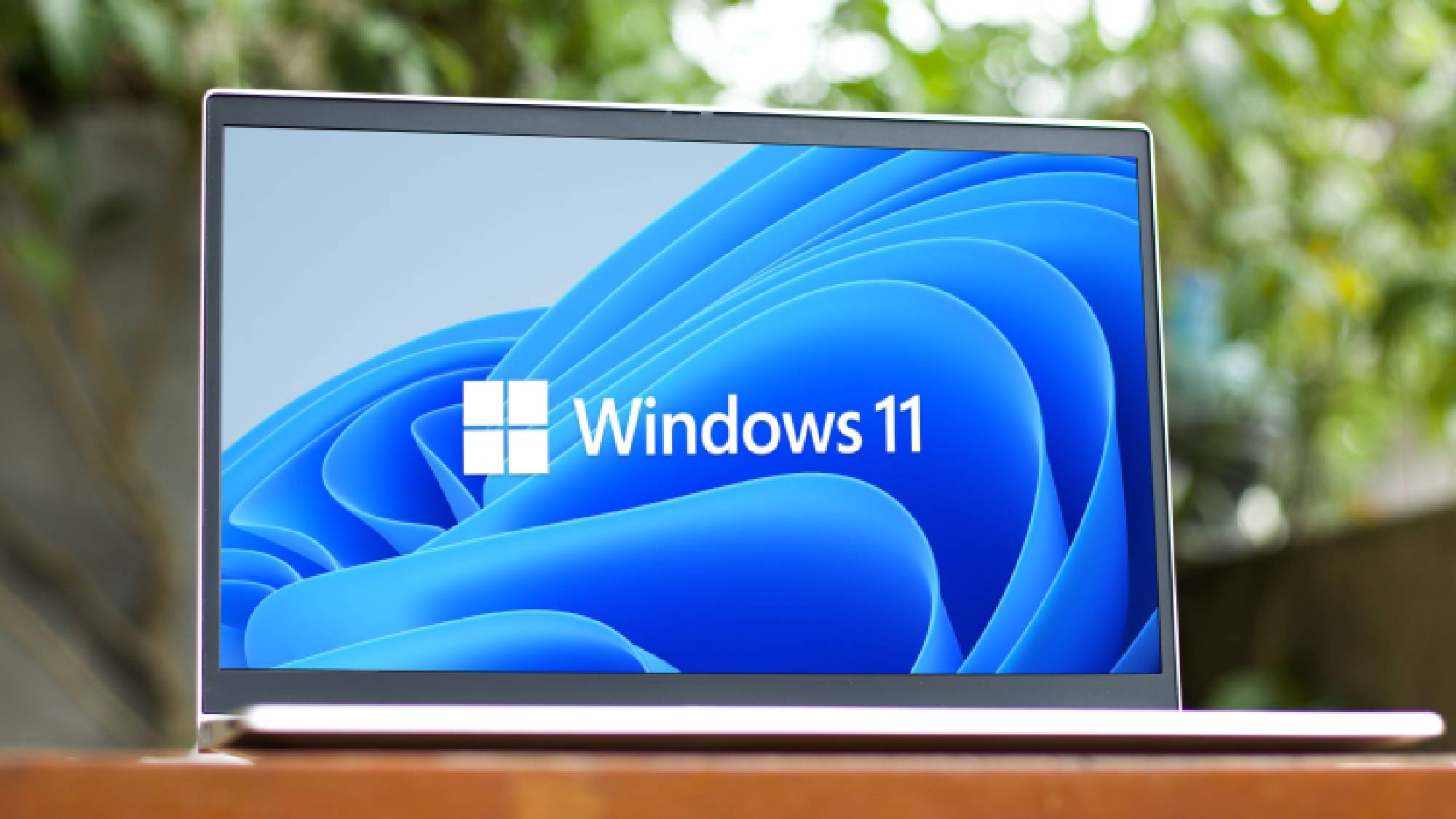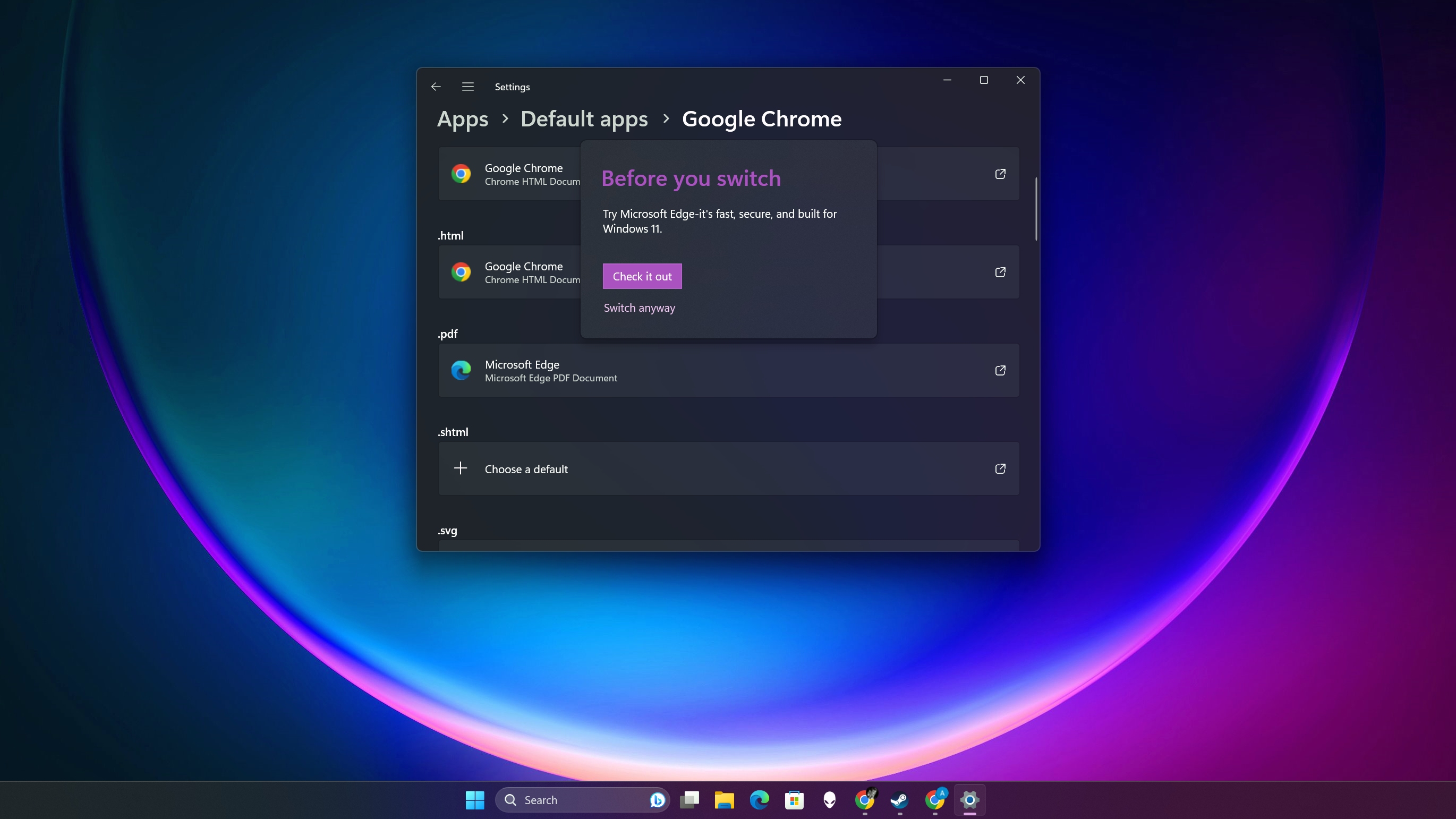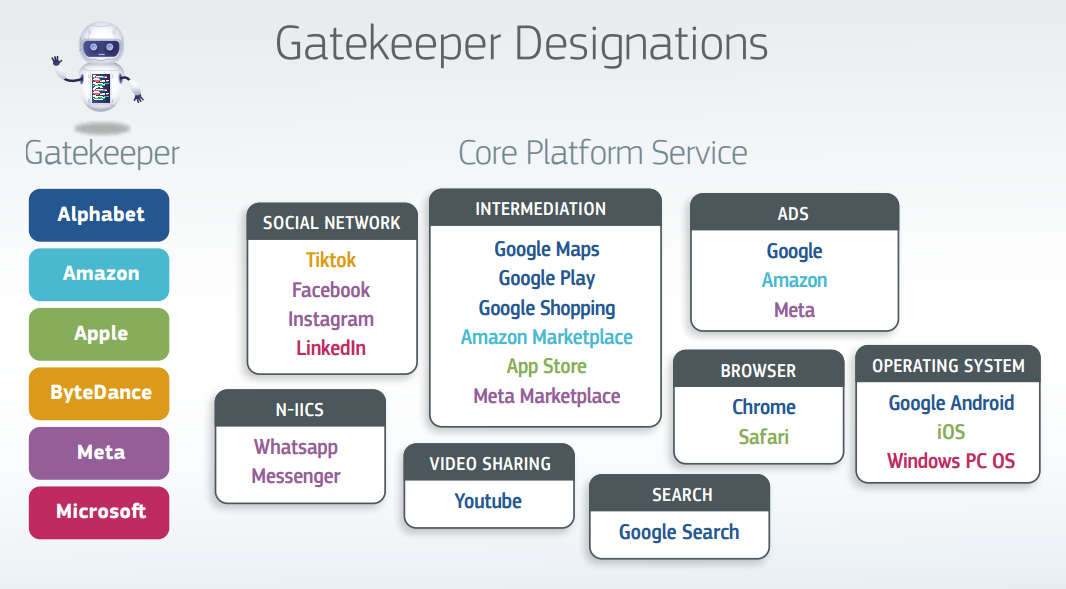Microsoft is fixing one of the things I hate most about Windows 11
Microsoft is finally letting select Windows 11 users ditch Edge

Microsoft is testing a build of Windows 11 that fixes one of my biggest complaints about it, but only in select parts of Europe — for now.
It's been nearly two years since I published our Windows 11 review, and in the year and change following its October 2021 debut I've come to like a lot of things about Microsoft's latest operating system.
I like having tabs in File Explorer, for example. I like how easy it is to arrange apps across my monitors using Snap Layouts. I love accessibility features like Live Captions and the Windows 11 Voice Access app, which has been a game-changer for how I work.
But one thing I absolutely hate about Windows 11 is the way it locks you into using Microsoft's Edge browser when interacting with core parts of the operating system. If you type something like "Starfield" into the Search field that's now built into the Windows 11 taskbar and click on one of the results, for example, it will always open in an Edge browser.
Hate Edge? Too bad! Microsoft does let you change what browser Windows 11 uses by default, but it's a laborious process (our guide to how to change the default browser in Windows 11 will quickly walk you through it) for no good reason.

And even if you go through all the hassle of telling Windows 11 to use say, Firefox or Chrome instead of Edge to open links and files which require a browser, you're still forced into Edge if you're foolish enough to use the Search field that, again, is smack dab in the middle of the taskbar.
This is why one of the first things I do on a new PC is dig into Windows 11's Taskbar settings menu (just right-click the taskbar to find it) and hide the Search box. It feels like such a waste that I have this fairly useful one-click window to the web right on the taskbar at all times, yet every time I use it I'm immediately irritated by having to use Edge.
Sign up to get the BEST of Tom's Guide direct to your inbox.
Get instant access to breaking news, the hottest reviews, great deals and helpful tips.
Luckily, Microsoft appears to finally be fixing this irritation — but only in parts of Europe which are part of the European Economic Area (EEA), according to the release notes for Windows 11 Insider Preview Build 23531.
The build was released into the Dev Channel of the Windows Insider Program, which is free to join if you want to check out pre-release builds of Windows before they roll out to everyone. But while lots of Windows 11 users can download and run this version of Windows, only those in the EEA can take advantage of one key feature that lets them ditch Edge for good.
While I'm confident this little slice of Edge-less paradise will become available to all Windows 11 users in Europe at some point, I'm less certain Microsoft will bring it stateside."
That feature is spelled out early on in the release notes: "In the European Economic Area (EEA), Windows system components use the default browser to open links," a simple sentence that suggests anyone in the EEA can configure Windows so that their favorite browser opens any time they do things like run a search from the taskbar or click a link in a Windows menu.
This is such a massive win for Windows users that it's hard to imagine Microsoft won't eventually roll this feature out to live versions of Windows 11. But while I'm confident this little slice of Edge-less paradise will become available to all Windows 11 users in the EEA at some point, I'm less certain Microsoft will bring it stateside.
What are the odds this feature ever leaves Europe?
The fact that Microsoft is only making this aspect of Build 23531 accessible to people in the EEA suggests it's motivated at least in part by economic pressure, so we may never see it become available in other markets without similar pressure.
If you (like me) need a crash course to understand these acronyms, the EEA was established in the '90s as a way to extend access to the European Union's single market to three members of the European Free Trade Association: Iceland, Norway and Liechtenstein. So really, what we're talking about here is Microsoft making this feature available only to folks in the European Union's shared market.
That suggests this is a response (pre-emptive or otherwise) to market pressure from the EU, which has a lot of power to shape the way tech companies do business in Europe. The pressure it puts on corporations can often cause global shifts in their business strategy, like last year when an EU ruling forced Apple to adopt USB-C iPhone charging by end of 2024.
Likewise, the EU's Digital Markets Act (which comes into effect March 2024) is likely going to cause Apple to open the iPhone and iPad up to alternative app stores, perhaps as soon as the advent of iOS 17 this fall. So if the economic power of the EU can cause even a tech giant like Apple to bend the knee, it's reasonable to think Microsoft would change even core aspects of one of its biggest products to make Europe happy.

The question is, will it make those changes worldwide? Because it's very likely this is a change to bring Windows 11 into compliance with the DMA, since as of yesterday (September 6) the EU's European Commission has named Microsoft as one of six "gatekeepers" it identifies as being responsible for key services which must be brought into line with the DMA within six months. The EU specifically names "Windows PC OS" as a core platform service which must comply with the new regulations.
That means doing things like "allow third parties to inter-operate with the gatekeeper's own services" and "[don't] treat services and products offered by the gatekeeper itself more favourably in ranking than similar services or products offered by third parties on the gatekeeper's platform," according to the DMA guidelines.
Sure sounds a lot like the way Microsoft has been cajoling and outright forcing people into using Edge on its platforms, doesn't it?
The EU has also opened four separate investigations in response to both Microsoft and Apple appealing the decision and claiming that some of their core services don't meet the requirements to be designed a "gateway" by the EU. Apple is just looking to get iMessage off the hook, but Microsoft is requesting exceptions for—you guessed it—Bing and Edge (and also Microsoft Advertising, which lets advertisers buy ads on sites like Bing and DuckDuckGo).
So what remains to be seen is, will the EU give Microsoft a pass and not designate Bing and Edge as core platform services? The European Commission has already concluded that Outlook does not meet the requirements after Microsoft provided "sufficiently justified arguments" that it should not qualify as a core platform service to be regulated by the DMA.
But even if Microsoft does get a pass on Edge and Bing, the fact that Windows itself is seen as a core platform service that must comply with the DMA is likely why we're seeing Microsoft make this radical change and roll it out only to EEA users.
Will Windows 11 users stateside ever get the same freedom to click links and see their browser of choice instead of Edge? It's hard to know, since this is a software-level change that can easily be limited to select regions and Microsoft has no clear incentive (other than massive goodwill) to make it available outside the EEA.
I've reached out to Microsoft for clarification and will update this article if we learn more, but I'd like to think the positive response to this little feature in Build 23531 will encourage the company to roll it out worldwide.
I'll certainly be keeping an eye on the Windows Insider Program and refreshing Windows Update regularly to see if I can get a chance to test this killer feature out here in the States. Maybe I should get a VPN? Do the best VPNs let you pull down Windows builds from another country? Just asking for a friend.
More from Tom's Guide

Alex Wawro is a lifelong tech and games enthusiast with more than a decade of experience covering both for outlets like Game Developer, Black Hat, and PC World magazine. A lifelong PC builder, he currently serves as a senior editor at Tom's Guide covering all things computing, from laptops and desktops to keyboards and mice.
